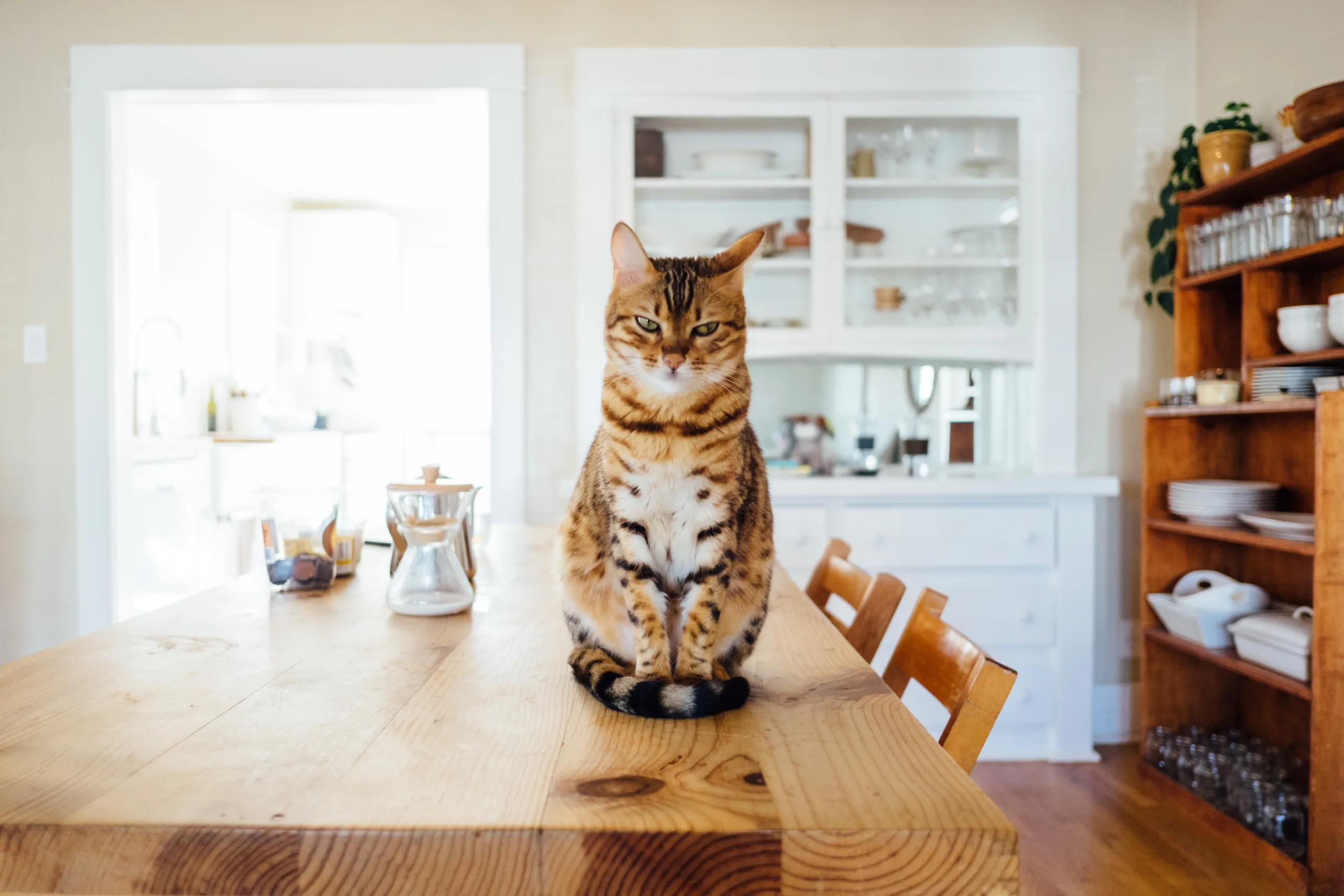How to Get Cats to Stop Scratching Door? Cats are known for their natural instinct to scratch, which helps them keep their claws healthy and mark their territory. However, when your feline friend starts scratching doors, it can be frustrating and damaging to your home. Fortunately, there are several strategies and solutions to prevent cats from scratching doors while promoting their well-being and keeping your home intact.
For more about cats click here
Understanding Why Cats Scratch Doors
Before delving into effective solutions, it’s essential to understand why cats engage in this behavior:
- Territorial Marking: Scratching is a way for cats to mark their territory both visually and through scent glands in their paws.
- Exercise and Grooming: Scratching also helps cats shed old layers of their claws, keeping them healthy. It’s a way to stretch their muscles and engage in exercise.
- Communication: Cats might scratch doors as a way to communicate their needs or desires, such as wanting to be let in or out.
Effective Strategies to Prevent Door Scratching
1. Provide Alternatives: Scratching Posts and Pads
One of the most effective ways to prevent door scratching is to provide alternative scratching surfaces. Scratching posts and pads made from materials like sisal rope or cardboard offer a satisfying outlet for your cat’s scratching instincts. Place these posts near the doors your cat tends to scratch to redirect their behavior.
2. Double-Sided Tape or Sticky Pads
Cats dislike sticky textures on their paws. Applying double-sided tape or sticky pads to the areas of the door that your cat scratches can deter them from engaging in the behavior.
3. Use Scent Deterrents
Cats have a strong sense of smell, and there are scents they dislike. Using natural scents like citrus (lemon or orange) or eucalyptus oil around the door can discourage scratching. However, make sure these scents are safe for your cat and won’t cause any harm.
4. Provide Environmental Enrichment
Engaging your cat in play and mental stimulation can help prevent boredom-related scratching. Interactive toys, puzzle feeders, and engaging play sessions can keep your cat occupied and less likely to focus on scratching doors.
5. Use Soft Paws Nail Caps
Soft Paws are nail caps that can be applied to your cat’s claws. These caps cover the sharp part of the claw and prevent damage caused by scratching. Consult your veterinarian for guidance on proper application.
Promoting Positive Behavior and Understanding Your Cat
6. Positive Reinforcement
Reward your cat when they use scratching posts or engage in desired behavior. Positive reinforcement with treats, praise, or gentle petting can encourage your cat to continue using the appropriate scratching surfaces.
7. Regular Nail Trimming
Keeping your cat’s nails trimmed can reduce the potential damage caused by scratching. Regular nail trims also help prevent accidents or injuries.
8. Address Underlying Issues
Sometimes, excessive scratching can be a sign of stress or anxiety. If your cat’s scratching behavior is accompanied by other behavioral changes, consult your veterinarian to rule out any underlying medical or psychological issues.
FAQs on How to Get Cats to Stop Scratching Door?
Q1: How do I stop my cat from clawing at the door? Provide alternative scratching surfaces like posts or pads, use scent deterrents, engage in play, and consider nail caps to prevent door scratching.
Q2: Why does my cat constantly scratch at my door? Cats scratch doors for various reasons, including marking territory, communication, exercise, and grooming.
Q3: How to discipline a cat? Disciplining a cat should focus on positive reinforcement, using rewards for desired behavior, and providing alternatives.
Q4: What smell do cats hate the most? Cats dislike scents like citrus (lemon, orange), eucalyptus oil, or certain herbs. These scents can deter undesirable behaviors like scratching.
Q5: Do cats get separation anxiety? Yes, cats can experience separation anxiety. Scratching doors might be a sign of distress when a cat is separated from its owner.
Q6: What does a cat pawing a door mean? Cats may paw doors to communicate their desire to be let in or out. Providing a clear routine for entering and exiting can help address this behavior.
Creating a Cat-Friendly Environment
Preventing door scratching involves understanding your cat’s natural instincts and providing them with suitable alternatives. By offering scratching posts, using scent deterrents, engaging in play, and promoting positive behaviors, you can create a harmonious living space for both you and your feline companion. Remember that patience and consistency are key when guiding your cat toward appropriate scratching habits.
Click here for more
